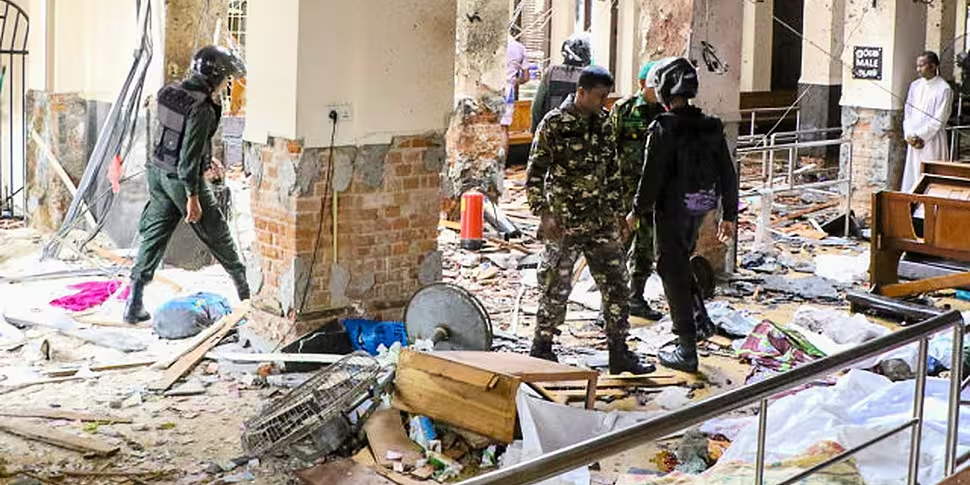Seven bombs exploded simultaneously as worshippers celebrated Easter.
 (Image source: aol.co.uk)
(Image source: aol.co.uk)Around 140 people are dead and 400 others were left injured, when seven simultaneous explosions rocked Sri Lanka's capital Colombo, and two other locations.
The explosions occurred at a number of churches and hotels on Easter Sunday - in what the country's prime minister, Ranil Wickremesinghe, has he strongly condemned as 'cowardly attacks'.
A hospital official has told Reuters that at least nine foreigners are among the dead.
The motive is unknown
Asia correspondent for Sky, Tom Cheshire, says the attacks appear to have been co-ordinated;
"The Catholic population of Sri Lanka isn't that much, about 6% of all people.
So the fact that these Churches look like they've been deliberately targeted...on Easter Sunday, one of the most important days of the year, and then these horrible, horrible explosions happening."
Sky's Neville Lazarus, in Delhi, says it's not yet known who's behind the explosions, as investigations begin;
"There will be a lot of combing of evidence to find how something like this could have taken place in a co-ordinated manner.
This comes after almost 10 years of peace, after the civil war which went on for almost 25 years."
The Irish president responds
President Michael D. Higgins has expressed his sympathy for and solidarity with Sri Lanka, following the attacks.
He condemned the bombings and said "the right to the freedom of worship is a fundamental right"
The Irish Embassy in New Delhi in India says if consular assistance is required the embassy there can be contacted, as well as the Honorary Consulate in Colombo.
The Department of Foreign Affairs in Dublin can also be contacted on 01 408 2000.
For now, the advice from the Irish Diplomatic Service to people in the region is to follow the instructions and advice of local authorities and stay indoors where possible.














